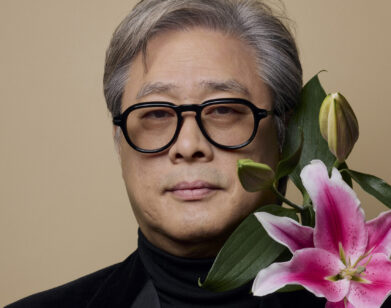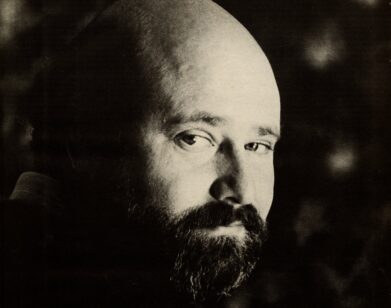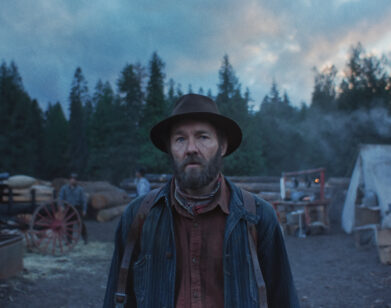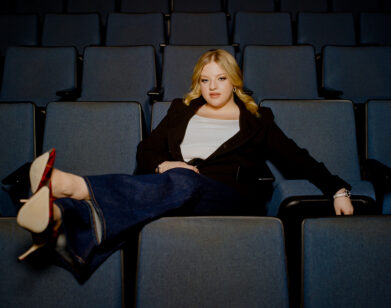Breathe Deep
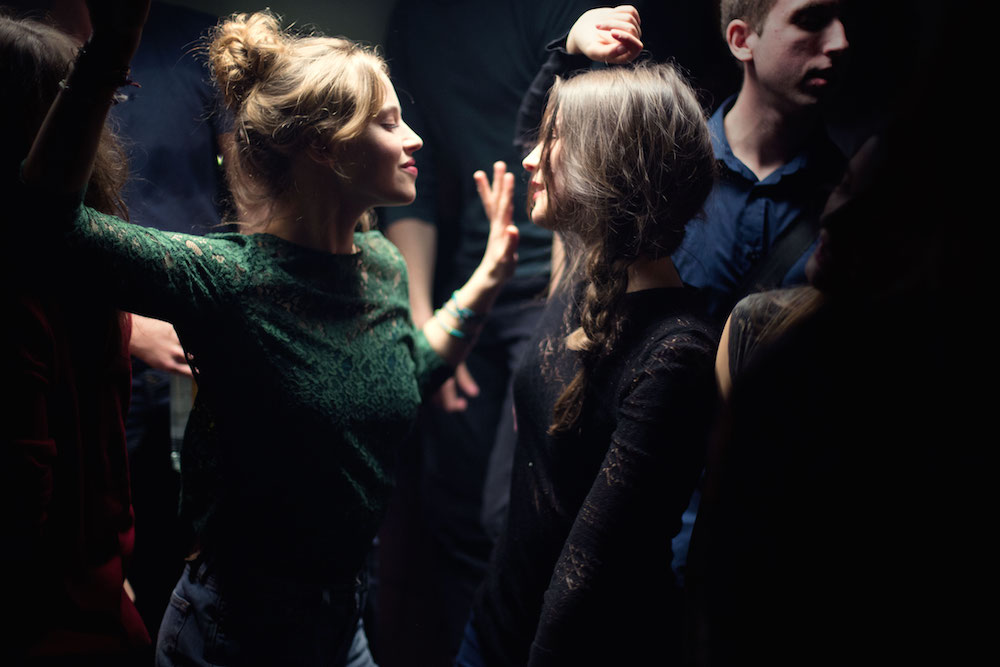
LOU DE LAÂGE AND JOSÉPHINE JAPY IN BREATHE COURTESY FILM MOVEMENT
The narrative conventions of high school films often too neatly wrap up the lessons learned in the students’ lives with those studied in the classroom. Mélanie Laurent‘s second directorial effort, Breathe, based on Anne-Sophie Brasme’s 2004 novel, positions the all-consuming nature of passion as a subject for classroom debate. And passion—specifically, the intoxicating, obsessive kind—is the genesis of the film’s series of events, where the arc of two teenage girls in the throes of best friendship shifts sharply as the relationship sours and spirals into ugly co-dependence.
Charlie (Joséphine Japy) is a pretty student in suburban France with a solid group of friends caught up in her parents’ impending divorce. When Charlie meets Sarah (Lou de Laâge), a gregarious beauty new to school after a time in Nigeria, where her mother works for an NGO, the two develop an immediate bond. They study together, eat together, party together, nap together, and when the holidays come, Charlie invites Sarah to a beach vacation. The exact moment of rupture—it could be Sarah’s pursuit of a boy Charlie has a crush on, or a drunken kiss between the two, or Sarah’s sudden closeness with Charlie’s mom—is unclear, but the subtle fissure between them splinters their entire friendship. Back at school, Sarah alternately bullies, ignores, or cozies up back to Charlie, enacting a regime of emotional torture that pushes her to an act that serves as the film’s deus ex machina.
Laurent deftly handles the material with an urgency befitting the sensitivity of a teenager’s state of mind, filling her frames with sensuous visuals that play with light and dark and enclose the viewer into Charlie’s deteriorating psychology. We spoke with the director and actress, who will next be seen in By the Sea with Brad Pitt and Angelina Jolie, by phone while she was in Paris.
COLLEEN KELSEY: You had read the original book before working on the script, correct?
MÉLANIE LAURENT: I was 17 when I discovered that book. I was in shock. I called the author, and she was 17 too. [laughs] We talked and I said, “I have to make a movie about that story.” She wanted to give me the rights, and then I couldn’t find any producers because I was, well, too young, maybe. Then I did my first movie as a director. When my producer [and I] talked about making another one, I suddenly thought about that book again.
KELSEY: What about that story really stayed with you over the years?
LAURENT: I met a lot of Sarahs. [laughs] I met some boys like Sarah and girls, too. That very special person, who loves you, but in a very wrong way, followed me. I was 30, and I was like, “Okay, that sort of relationship has to stop.” I think that making that movie helped me to put a cross on a period of my past.
KELSEY: You made some big changes to the original book in the script. What were the biggest ones, for you, and the reasons for that? I know chronology was one.
LAURENT: I changed everything. I kept the names. [laughs] I kept the end. The thing is, I didn’t want to read the book again when I was starting to write it, so [I was working with] my memories of the book. I remember that huge tension. But in the book, the first big thing is, it takes place during four years, which is really too long for a movie. I really wanted to do something very short, like how your life can change in few months, and how a big drama can arrive in a second.
KELSEY: Obviously, you read this book when you were so young and it made a big impression. Did you find when you were making the movie you were able to see the movie from your current perspective, or did you feel residual feelings from being a teenager?
LAURENT: That was my biggest fear. I was 30, and that period was another life. Being at a school again was really hard for me, because I have really bad memories of that period. That’s why I chose a big band of people, and I trusted them to put some truth in it. It was really important for me to choose the perfect cast for the situation, even, like, how they talk. I wrote the script and then I said, “You can say everything you want.”
KELSEY: I read that when you were adapting the book into the screenplay, you were writing with photos of the two lead actresses for Charlie and Sarah front of you. What about them compelled you to translate the story for them specifically?
LAURENT: I saw them in different movies and I printed two pictures: A very dark one for Lou, who played Sarah, and a very light one for Josephine. [laughs] They were on my desk all the time. So I finally met them, and I was really, really stressed out because my expectation was so strong. I had this big fantasy that they would be so perfect. And [at] first [the] cast was not really good. I think they were stressed, too. I took a day to think about that, and I realized that was part of my job, to take them to what I want. We worked a little bit before; I took them to a house in the countryside and we spent three days [there]. I really wanted them to be friends in real life, so everything would be easier to play. When you love someone, it’s easier to play hate. They were absolutely amazing on set.
KELSEY: It’s really natural for the audience to immediately see themselves in Charlie, and sympathize with her, Sarah being very much the antagonistic, abusive, other.
LAURENT: You know, I met someone during the tour [for the film], and she gave me a letter saying, “That was a big shock for me, because I’m Sarah. I make people suffer.” I thought that was so honest to say that. I met a lot of Charlies, and it was really moving, because when we screened the movie in Paris, in front of students, they were crying, everybody was saying, “I don’t want to be Charlie anymore. I don’t want to suffer, it’s too hard to go to school everyday when you suffer that much.” That was really tense, and in a way, very beautiful, because the movie could help them talk about something very taboo. And suddenly, I received that letter from that girl who looked like Charlie, and she was telling all the truth about herself. I thought that was really brave.
KELSEY: But as the movie progresses you do see that there are qualities to Sarah that are sympathetic, especially the situation with her mother. Do you think that she’s just a damaged soul who’s acting out, or something more odious, like a sociopath? At the end Sarah has that very long monologue about how Charlie was really the antagonist for her. I don’t know if I totally believe it, but it is believable.
LAURENT: I really wanted to show two very, very lonely and lost girls. I chose to follow Charlie. She’s in every shot in the movie. Maybe Charlie makes that story in her head. Maybe she just overreacts, because she’s totally addicted to that girl. But then, I wanted the audience to understand Sarah a little bit. If you don’t, it’s less interesting.
KELSEY: So this is the second film you’ve directed; was it a very different experience from working on your debut? Was it easier?
LAURENT: Your first experience, you want to put a lot of things in and you make a lot of mistakes. It’s full of charm, in a way. But then you don’t really realize the pressure. The press was not really good on my first one. Suddenly, with Breathe, we went to Cannes and the critics liked it. I felt a lot of pressure. I remember when I saw the final cut of the movie, I said to my editor, “The movie is really bad. I don’t want to show the movie.” [laughs] I was crying in the editing room saying, “I just did the worst movie ever,” and then it went to Cannes, and I, and I was like, “Wow, something happened.”
KELSEY: Something that really defined the movie for me was how lush and organic the visuals were. What was your initial idea for the visual direction?
LAURENT: My DP and I really wanted to start with a lot of light and and nature. We worked a lot of the soundtrack, starting with stereo sound, and then at the end of the movie, it’s mono sound, so you have that effect in the theater that the sound is in [Charlie’s] head more and more. We did the same with shots, going more and more close up. I didn’t want to make a very aesthetic movie. My first one was more aesthetic, because the story could have that idea. For Breathe I shot in beautiful places, so it’s easy when you have a good DP to have beautiful shots. But the idea was to be in that very dark life. My two actresses, they are so beautiful to film, but I think it was right to do that movie in that way.
KELSEY: Being an actor yourself, does it affect the way that you direct your actors?
LAURENT: I think I love them in the right way. I can’t work in a bad atmosphere. I want to have a lot of fun while I’m shooting. I’m protecting my actors all the time, and I want them to have fun, because when you have fun, you can make amazing, amazing things onscreen. It’s the most important thing.
BREATHE IS OUT IN LIMITED RELEASE SEPTEMBER 11.

